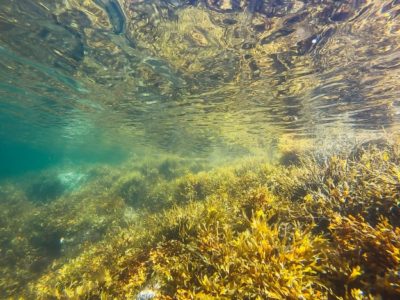Researcher provides vital input to major report on natural carbon capture
Work on how aquatic plants extract carbon from the environment by a team led by Dr Ray Ward, Principal Lecturer in Environmental Sciences at the University of Brighton (home to our South East Hub, the Green Growth Platform), has made a key contribution to a new Natural England report into carbon sequestration.
The large-scale report – entitled Carbon Storage and Sequestration by semi-natural habitats – draws on research carried out by Dr Ward and recent Brighton PhD graduate Dr. Mariana Lima that explores carbon sequestration and storage in watery habitats such as seagrass meadows, kelp forests, salt marshes and mangroves.
Dr Ward said: “There is an increasing acceptance of the urgency to reduce carbon emissions to address the threat of climate change. This must be a multi-faceted approach and one way to remove carbon from the atmosphere is through nature-based solutions including storing and sequestering carbon in vegetation and soils.
One of the recent pushes in research has been investigating carbon in coastal systems, termed ‘blue carbon’. Blue carbon systems sequester carbon at much greater rates than terrestrial systems, including tropical forests, yet these are some of the most threatened ecosystems.
Over the last decade we’ve been investigating how carbon sequestration is impacted by climate change, pollution and ecosystem degradation in salt marshes, seagrasses, mangroves and kelp from the Arctic to the tropics and here in the UK to identify how we can best protect these vital and threatened systems.”
Read the original story on the University of Brighton website here.
Image: Brian Yurasits on Unsplash
